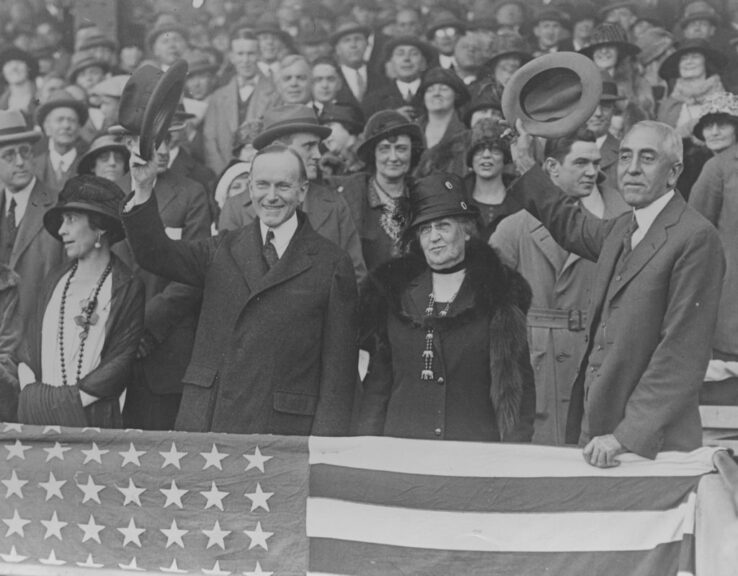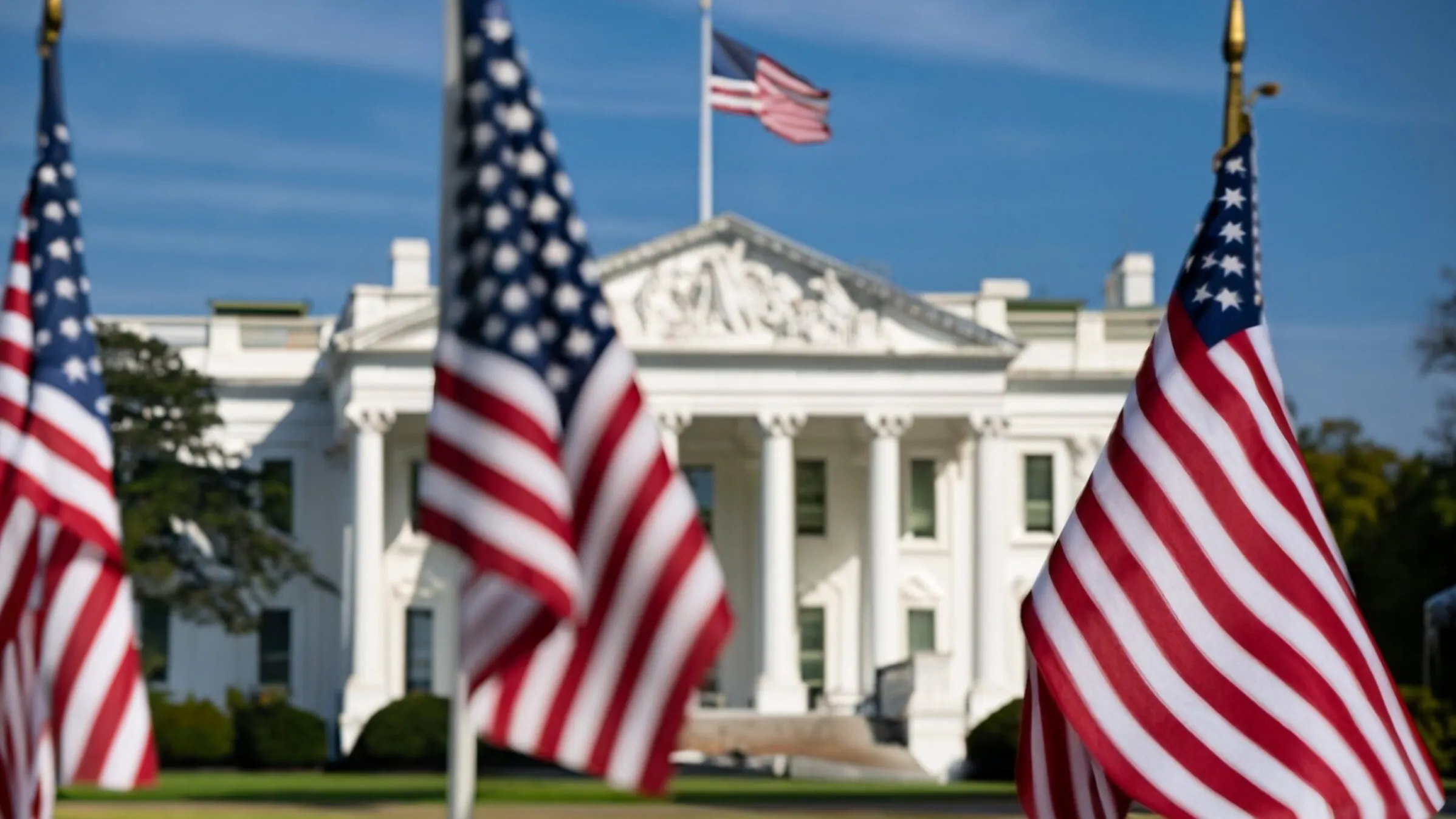Some July 4th traditions endure better than others. We’ll always have fireworks, parades, and family picnics, it seems. But there was also a time when presidents offered eloquent speeches on America’s birthday — ones aimed at fostering unity and gratitude. And who can deny we could use more of that in such fractious times?
Sure, few of us would clamor for another presidential speech. But in an age where we’re losing a sense of who we are and the significance of our heritage, it’s a tradition worth renewing, especially with our 250th anniversary on the horizon.
Both Abraham Lincoln and Calvin Coolidge delivered particularly notable July 4th speeches. In his opening, Coolidge noted that, “It is to pay our tribute of reverence and respect to those who participated in such a mighty event that we annually observe the fourth day of July.” The event, of course, was the birth of a new nation.
It’s all too easy to forget the remarkableness of the deeds done, the selflessness of the risks taken, and the magnitude of the accomplishments of our Founding Fathers. General George Washington defeated the most formidable military in the world. The Constitution was the “miracle of Philadelphia,” and remains the oldest written constitution in existence. Such undertakings were assumed for the benefit of not only those first Americans, but their posterity.
The issuance of the Declaration of Independence was still more noteworthy. As Coolidge explained, “It was not because it was proposed to establish a new nation, but because it was proposed to establish a nation on new principles, that July 4, 1776, has come to be regarded as one of the greatest days in history.” The Declaration put forth the revolutionary idea that no human being is born to rule over others absent their consent. That idea makes each American the fortunate inheritor of a unique trust: a nation committed to self-government.

FPG/Getty Images
That trust establishes a connective chain of gratitude and obligation for the American people today. The Founding generation launched the experiment. The current generation has the task of continuing it by governing themselves, assuming their duties and respecting the rights of others, in equal measure. Without an appreciation of their heritage, we can’t expect them to remain galvanized to maintain a life of freedom for their children.
Such reflections serve to inspire, just as they humble. Contemporary Americans are the posterity, but not the singular source, of America’s material blessings. From the Founding to Lincoln’s time, America had grown in size, population, and wealth. It was the “iron men” who fought for the principles of America, who enabled the “degree of prosperity that we now enjoy.” The Founders established a commercial republic, respectful of property rights and disdainful of class distinctions, that unleashed American ingenuity, entrepreneurship, and mobility.
Both Lincoln and Coolidge believed such enterprise could ultimately be traced to the Declaration of Independence. It is the principle of human equality that eliminates fixed social status and gives individuals the right to eat the bread that their own hands earn, as Lincoln explained.
In turn, Coolidge contended that, “The things of the spirit come first.” He warned that, unless Americans cling to the Declaration, “all our material prosperity, overwhelming though it may appear, will turn to a barren scepter in our grasp.” Material pursuits, when not bound by eternal and immutable principles, become destructive. Self-reliance degrades to autonomy, greed, and consumerism. Profound abundance, absent the transcendent and sacrificial, ushers in a crisis of purpose and meaning. Coolidge’s words portend our time.
Fortunately, Coolidge also provided a path forward. Examinations of the past serve to underscore the unifying work that went into the Declaration and offer hope for renewed consensus. The Declaration was not an exegesis of privileged, select statesmen but “the result of the seasoned and deliberate thought of the dominant portion of the people of the Colonies.”
For example, the principle of equality was present in nine of the early state constitutions, according to Founding scholar Dr. Thomas West. Ideas about inherent natural rights and equality were put forth in the Virginia Declaration of Rights, penned by George Mason, prior to the Declaration of Independence. The recognition that “all men are created equal” was made accessible by the Judeo-Christian tenet that all are equal in the eyes of God. And influential religious leaders like Rev. Thomas Hooker preached to the approximately 70-80% of colonial Americans who attended church that, “The foundation of authority is laid in the free consent of the people.”
Both Coolidge and Lincoln believed American unity resides in the Declaration. For his part, Lincoln believed that the principle “all men are created equal” establishes a common moral sentiment. It is the right of every American to “claim it as though they were blood of the blood, and flesh of the flesh of the men who wrote that Declaration.” For so we are.
That is the electric cord in that Declaration that links the hearts of patriotic and liberty-loving men together, that will link those patriotic hearts as long as the love of freedom exists in the minds of men throughout the world.
It is fidelity to a set of principles, rather than exclusive religions or ethnicities, that defines Americans.
Matching Lincoln, Coolidge contended that:
About the Declaration there is a finality that is exceedingly restful … If all men are created equal, that is final. If they are endowed with inalienable rights, that is final. If governments derive their just powers from the consent of the governed, that is final.
Americans can find contentment, solitude, and pride in the resilient principles of the Declaration of Independence and the connectivity they offer.
In Fourth of Julys gone by, Abraham Lincoln and Calvin Coolidge delivered two speeches worthy of Americans’ lasting consideration. Who will be the next statesman to do so? It may be some time, as such genius is difficult to match. Yet perhaps it is not so essential that presidents today echo their masterful words. What matters most is that we Americans believe them ourselves.
* * *
Brenda M. Hafera is the Assistant Director and Senior Policy Analyst at The Heritage Foundation’s Simon Center for American Studies.
The views expressed in this piece are those of the author and do not necessarily represent those of The Daily Wire.

Continue reading this exclusive article and join the conversation, plus watch free videos on DW+
Already a member?

.png)
.png)

